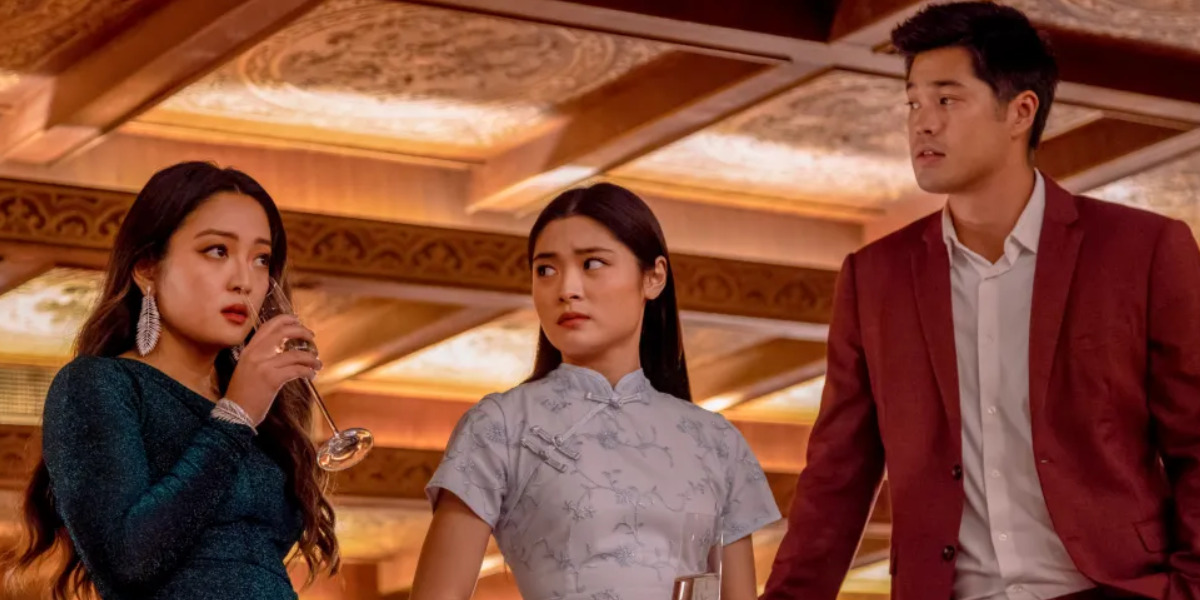‘Love in Taipei,’ directed by Arvin Chen, is a romantic comedy film centering around the Asian-American experience. Over the summer, 18-year-old Ever Wong embarks on a trip from Ohio to Taiwan in a cultural immersion program that helps young Asians reconnect with their culture. Although her parents enroll her in the program to improve her Mandarin, unbeknownst to them, the program is infamous as a meeting hub for teenagers. Free of supervision for the first time, Ever has the time of her life under the influence of her new friend, the rule-breaking Sophie Ha.
Along the way, Ever befriends Rick Woo and Xavier Yeh, two distinct yet equally dreamy boys. The film brings a refreshing story revolving around the unique Asian-American experience of reacquainting with your culture later in life. While exploring the same, the tale presents a quintessential coming-of-age narrative with a universal relatable quality. Due to the same, viewers must be curious to know if the story has any basis in true events. Let’s find out!
Love in Taipei is an Adaptation of a 2020 Novel
While ‘Love in Taipei’ is not based on a true story, the film does have deep roots in reality. It is an adaptation of Abigail Hing Wen’s 2020 fictional novel ‘Loveboat, Taipei.’ The film follows the book’s events closely and presents an authentic cinematic adaptation. Therefore, given the fictitious nature of the characters and the events depicted in ‘Loveboat, Taipei,’ the same is true for its on-screen counterpart, ‘Love in Taipei.’

Still, the story itself is infused with several realistic and authentic elements that accentuate its relatability. For instance, the cultural immersion program presented in the story “Chien Tan” is actually a real-life program that the author attended in her youth. As such, many of the elements explored within the narrative stem directly from Wen’s own experiences. Discussing the same in an interview with Nerd Daily, Wen said, “I would say the internal character journeys are very much mine: learning to navigate between cultures, discovering identity in all its facets, and trying to figure out how to pursue passions while honoring parents.”
Likewise, the author’s husband, who also attended the program a few summers before her, presented a similar source of real-life inspiration for her. As such, some of the storylines and character arcs are bound to reflect reality and will likely instill a sense of familiarity and recognition within the audience. However, at the same time, several aspects within the program, like the characters, the talent show, and the dramatic love quadrangle, are reportedly fictional elements incorporated to enhance the story.
Given the novel’s massive success and entertainment value, it was easy to decide to create a live-action adaptation of the story. Shortly after the book’s release, Wen started communicating with Hollywood, and discussions about the adaptation’s fine points began. Due to the same, she was heavily involved in making the film and played a part in choosing the screenwriters Mackenzie Dohr and Charlie Oh. Additionally, it was important for Wen to ensure that the film’s authenticity remained preserved as an all-Asian-American story with Asian-American characters.
As a result, the author continued to be part of the conversation during the development and filming processes. Similarly, director Arvin Chen also focused on maintaining an authentic approach to the story. Chen has previously created several films in Taiwan. However, ‘Love in Taipei’ was his first venture into creating something for the Western audience. His pre-existing connection with the city as a resident of Taipei further helped him add a realistic touch to the narrative.
Furthermore, like the characters in his film, Chen traveled to Taipei in his youth to discover himself. Consequently, he connected with the story and could authentically bring it to the screen. Ultimately, ‘Love in Taipei’ is not based on a true story. Nevertheless, its central theme of self-discovery helps the narrative connect with a large audience. More importantly, including Asian-American voices to convey authentic Asian-American experiences ensures a strong sense of realism within the film.
Read More: Best Rom-Coms


You must be logged in to post a comment.